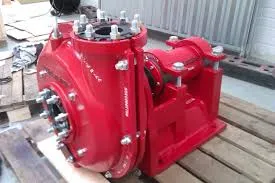English
- Afrikaans
- Albanian
- Amharic
- Arabic
- Armenian
- Azerbaijani
- Basque
- Belarusian
- Bengali
- Bosnian
- Bulgarian
- Catalan
- Cebuano
- Corsican
- Croatian
- Czech
- Danish
- Dutch
- English
- Esperanto
- Estonian
- Finnish
- French
- Frisian
- Galician
- Georgian
- German
- Greek
- Gujarati
- Haitian Creole
- hausa
- hawaiian
- Hebrew
- Hindi
- Miao
- Hungarian
- Icelandic
- igbo
- Indonesian
- irish
- Italian
- Japanese
- Javanese
- Kannada
- kazakh
- Khmer
- Rwandese
- Korean
- Kurdish
- Kyrgyz
- Lao
- Latin
- Latvian
- Lithuanian
- Luxembourgish
- Macedonian
- Malgashi
- Malay
- Malayalam
- Maltese
- Maori
- Marathi
- Mongolian
- Myanmar
- Nepali
- Norwegian
- Norwegian
- Occitan
- Pashto
- Persian
- Polish
- Portuguese
- Punjabi
- Romanian
- Russian
- Samoan
- Scottish Gaelic
- Serbian
- Sesotho
- Shona
- Sindhi
- Sinhala
- Slovak
- Slovenian
- Somali
- Spanish
- Sundanese
- Swahili
- Swedish
- Tagalog
- Tajik
- Tamil
- Tatar
- Telugu
- Thai
- Turkish
- Turkmen
- Ukrainian
- Urdu
- Uighur
- Uzbek
- Vietnamese
- Welsh
- Bantu
- Yiddish
- Yoruba
- Zulu
Telephone: +86 13120555503
Email: frank@cypump.com
Sep . 28, 2024 10:10 Back to list
abrasive slurry pump
Understanding Abrasive Slurry Pumps Key Features and Applications
Abrasive slurry pumps play a vital role in various industries where the transportation of slurry—mixture of liquids and solid particles—is necessary. These pumps are specifically designed to handle materials that are often corrosive, viscous, or abrasive in nature, which poses significant challenges to conventional pumps. Understanding the features and applications of abrasive slurry pumps is essential for industries such as mining, construction, and wastewater management.
One of the primary characteristics of abrasive slurry pumps is their robust construction. These pumps typically feature materials like high-chrome iron or rubber linings that resist wear and corrosion caused by abrasive particles in the slurry. The impellers and volutes of these pumps are often reinforced to withstand the force and impact of the solid particles, ensuring longevity even under harsh operating conditions.
Another critical feature of abrasive slurry pumps is their hydraulic design, which allows for effective handling of high solid concentrations
. Unlike standard pumps, slurry pumps are designed to optimize flow dynamics, reducing the likelihood of clogging and ensuring smooth operation. They are often equipped with adjustable impeller sizes and pump configurations, allowing for customization to meet specific operational requirements.abrasive slurry pump

When it comes to applications, abrasive slurry pumps are primarily used in the mining industry for transporting tailings, ore slurries, and other heavy materials. In the construction sector, they facilitate the movement of concrete, sand, and gravel, making them indispensable for building and infrastructure projects. Moreover, wastewater treatment facilities utilize these pumps to manage sludge and other abrasive byproducts from the treatment process, ensuring efficient and safe handling.
The selection of the right abrasive slurry pump is crucial for operational efficiency. Factors such as the type of slurry, solids concentration, flow rate, and the specific application must all be considered. Additionally, regular maintenance and monitoring of these pumps are essential to prevent failures, which can lead to costly downtimes.
In conclusion, abrasive slurry pumps are specialized equipment designed to handle challenging materials in various industrial applications. Their robust construction, hydraulic efficiency, and adaptability make them an essential component in industries that deal with abrasive and corrosive substances. By understanding their features and applications, businesses can enhance productivity and ensure the longevity of their pump systems.
-
ISG Series Vertical Pipeline Pump - Chi Yuan Pumps Co., LTD.
NewsJul.30,2025
-
ISG Series Vertical Pipeline Pump - Chi Yuan Pumps Co., LTD.|energy-efficient fluid handling&industrial durability
NewsJul.30,2025
-
ISG Series Vertical Pipeline Pump - Chi Yuan Pumps | Advanced Engineering&Industrial Efficiency
NewsJul.30,2025
-
ISG Series Pipeline Pump - Chi Yuan Pumps | High Efficiency, Energy Saving
NewsJul.30,2025
-
ISG Series Vertical Pipeline Pump-Chi Yuan Pumps|High Efficiency&Reliable Performance
NewsJul.29,2025
-
ISG Series Vertical Pipeline Pump|High Efficiency&Low Noise
NewsJul.29,2025










